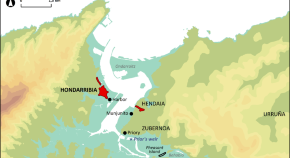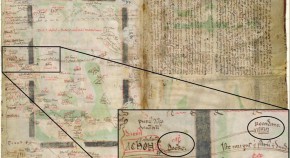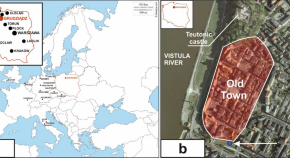
Collection
Medieval Waters
- Submission status
- Open
- Open for submission from
- 01 January 2022
- Submission deadline
- Ongoing
This topical collection brings together innovative approaches to medieval water history. It includes works from Europe and the Middle East from the transformation of the ancient Roman world to the dawn of early modernity, roughly the period 500-1500. Medieval societies developed many different approaches to water management, used water power as a source of energy and developed innovative hydraulic machinery. Medieval cultivation and land use is inconceivable without control over the supply and drainage of water from ecosystems. Medieval worlds are also characterized by the importance of religious beliefs and communities, their conflicts, contacts and relations, and all faith communities used water for as part of their religious ritual practices and their theology. These contributions remind us of the vibrancy of medieval understandings of water and the natural world, the variety of ways to deal with water and the importance of regional and local histories when considering how water systems and practices differ across time and space.
Editors
-
Ellen F. Arnold
University of Stavanger, Norway Ellen F. Arnold is Associate Professor of Pre-modern Environmental History at the University of Stavanger, Norway, and co-Editor-in-Chief of the journal Water History.
-
Martin Schmid
University of Natural Resources & Life Sciences, Vienna (BOKU) , Austria Martin Schmid is Associate Professor at the Center for Environmental History (ZUG), Institute of Social Ecology, Department for Economics and Social Sciences (WiSo), University of Natural Resources and Life Sciences Vienna (BOKU), and co-Editor-in-Chief of the journal Water History.
Articles (4 in this collection)
-

-
“From bank to bank, as much as the tide and the sea’s waves cover.” Possession, border and conflicts around salmon fishing resources in the Bidasoa estuary (Basque Country): a long-term approach
Authors
- Josu Narbarte
- Content type: OriginalPaper
- Published: 21 August 2022
- Pages: 267 - 288

-
The mills of god grind slowly: the Na’aman River milling dispute and the thirteenth-century hydraulic crisis in the Crusader States
Authors
- Tobias Hrynick
- Content type: OriginalPaper
- Published: 19 April 2022
- Pages: 61 - 83

-
Urban water supply infrastructure in Grudziądz (northern Poland): from the Middle Ages to the pre-modern times
Authors
- Wacław Kulczykowski
- Content type: OriginalPaper
- Open Access
- Published: 13 January 2022
- Pages: 41 - 59




